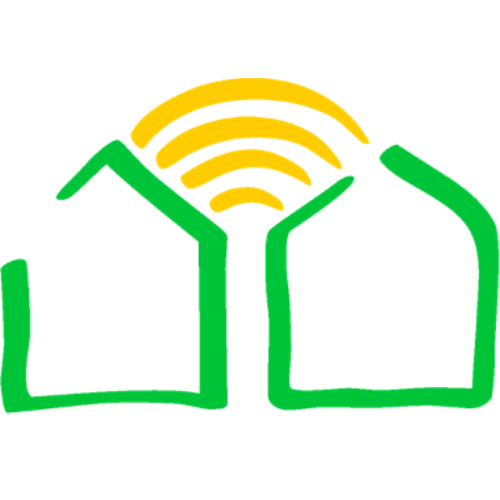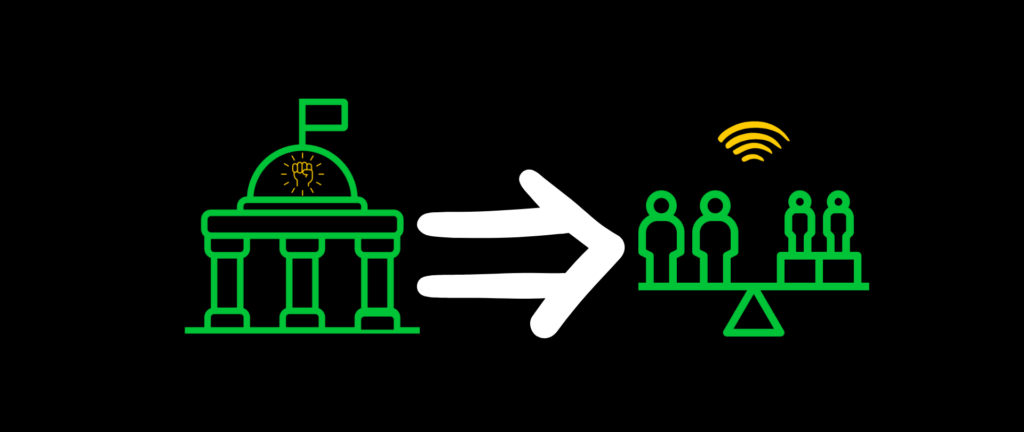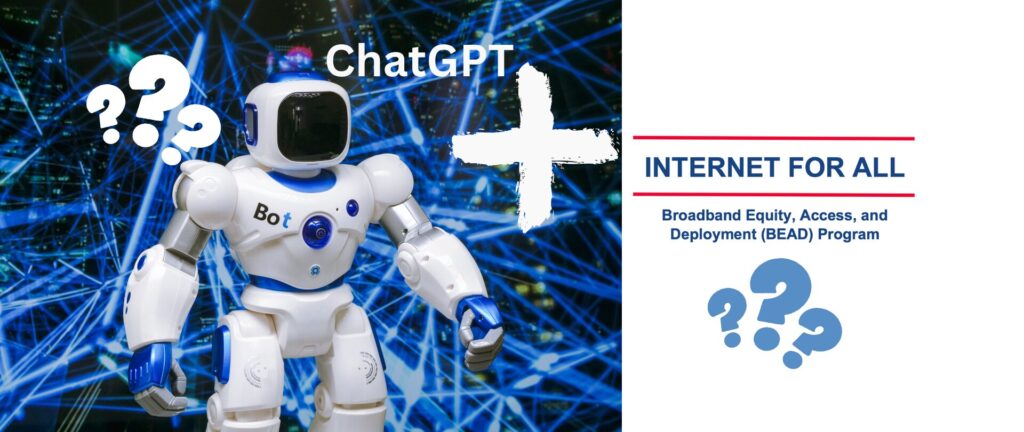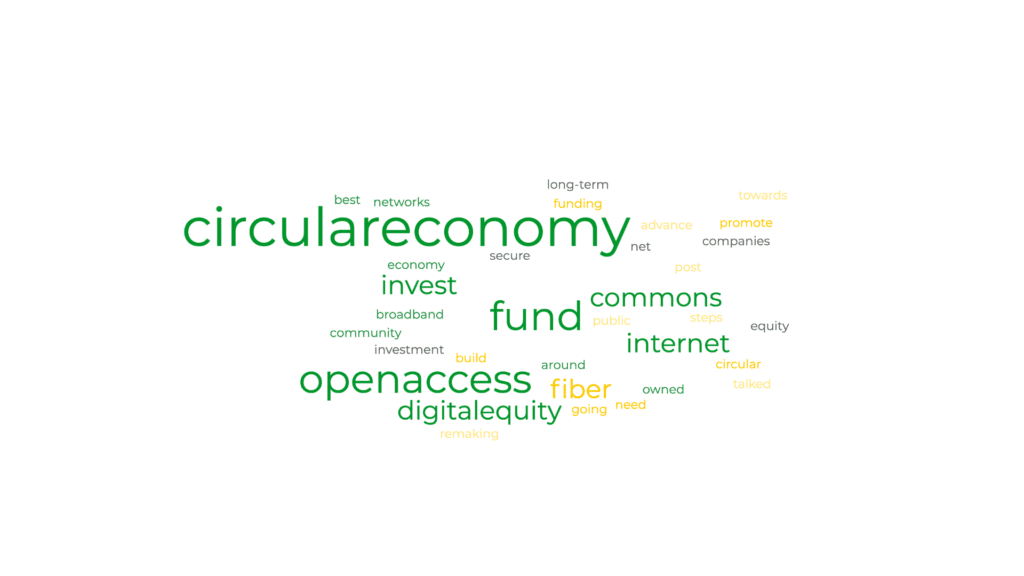Volunteer to help lead your community to own their Internet network

Position: Community Broadband Facilitator
From technical work sitting at the computer to social interaction within the community we have many opportunities that will help you to develop your skill sets and we provide training for you. The Roadmap for Community Management as a Service (CMaaS) to support the formation of community-owned Internet networks is a priority for several compelling reasons, and these same reasons can inspire and excite volunteers about contributing to such a project:
Why the Roadmap is a Priority:
- Digital Equity and Inclusion: Bridging the digital divide is critical in today’s society, where access to the Internet is indispensable for education, work, healthcare, and civic engagement. This project directly addresses disparities in broadband access, especially in underserved and rural areas, making it a vital step towards digital equity.
- Community Empowerment: By involving local stakeholders in every phase, from planning to governance, the project empowers communities to take ownership of their digital futures. This approach fosters a sense of pride and accomplishment, as the network directly reflects the community’s efforts and values.
- Economic Development: High-speed Internet access can significantly boost local economies by attracting businesses, supporting local entrepreneurs, and creating job opportunities, particularly in tech-related fields. The project lays the foundation for sustainable economic growth and innovation.
- Educational Opportunities: With the increasing importance of digital literacy and online learning, community-owned networks ensure that all members, regardless of age or economic status, have access to educational resources, thereby enhancing the community’s overall educational outcomes.
- Resilience and Self-Sufficiency: A community-owned network can be more responsive to local needs and more resilient to external disruptions. This project equips communities with the knowledge and infrastructure to maintain and adapt their networks, leading to long-term self-sufficiency.
What Can Excite Volunteers About This Project:
- Making a Tangible Difference: Volunteers have the opportunity to directly impact their communities by contributing to a project that addresses a critical need. Seeing the real-world effects of their work can be incredibly rewarding.
- Engagement with Cutting-Edge Technology: Working on the deployment and maintenance of a mesh network offers volunteers hands-on experience with innovative technology. For tech enthusiasts and professionals, this can be an exciting chance to apply their skills in a meaningful context.
- Community Building and Leadership: Volunteers will be at the forefront of fostering community engagement, leading discussions, and facilitating decision-making processes. This role in building and nurturing community ties can be a powerful motivator.
- Learning and Development: The project offers numerous opportunities for personal and professional growth. Volunteers can gain new skills in digital tools, project management, governance, and educational content creation, enhancing their resumes and expanding their networks.
- Advocacy for Digital Rights: Volunteers who are passionate about digital rights, equity, and access will find this project aligns closely with their values. Contributing to a community-owned network is a form of activism, advocating for fair and open Internet access for all.
In summary, the roadmap for CMaaS is prioritized due to its potential to deliver significant social, economic, and educational benefits. It offers volunteers a unique chance to be part of a meaningful, impactful project that not only harnesses the latest technology for community good but also aligns with broader goals of digital inclusion and empowerment.
Skills that you should have an interest in improving
Becoming a community broadband facilitator involves a unique set of skills, blending technical knowledge with community organizing and project management. Here’s a list of the top skills that would be highly beneficial:
- Technical Knowledge of Broadband Networks: Understanding the basics of network infrastructure, including fiber optics, wireless technologies, and internet service provision, to make informed decisions and explain concepts to non-technical stakeholders.
- Community Engagement and Organizing: Ability to engage with community members, listen to their needs, and mobilize them around the goal of building a community-owned internet network. This includes facilitating meetings, workshops, and discussions.
- Project Management: Skills in planning, executing, and managing projects, including timelines, budgets, and resources. This is crucial for overseeing the development of the broadband network from inception to completion.
- Stakeholder Relations: Ability to interact effectively with a diverse range of stakeholders, including residents, local businesses, government officials, and potential funding sources, building consensus and partnerships.
- Grant Writing and Fundraising: Knowledge of how to identify, apply for, and manage grants, as well as other fundraising strategies to secure the necessary capital for network infrastructure projects.
- Regulatory Knowledge and Advocacy: Understanding of local, state, and federal regulations affecting broadband deployment, and the ability to advocate for policies that support community broadband initiatives.
- Problem-Solving and Adaptability: Ability to identify challenges and barriers to broadband deployment and develop creative solutions. Being adaptable to changing circumstances and stakeholder needs is crucial.
- Marketing and Communication: Skills in promoting the community broadband initiative, communicating its benefits to the community, and engaging potential subscribers through various channels, including social media, newsletters, and public presentations.
- Technical Training and Education: Ability to organize and provide training sessions for community members on technical aspects of broadband, digital literacy, and network maintenance.
- Leadership and Vision: Strong leadership skills to inspire and guide the community toward the shared vision of a community-owned broadband network, including setting clear goals and maintaining momentum.
- Conflict Resolution: Skills in mediating disputes and resolving conflicts that may arise among community members or stakeholders during the process of planning and implementing the broadband network.
Developing these skills can empower a volunteer to successfully facilitate the creation of a community-owned internet network, ensuring it meets the community’s needs and fosters long-term sustainability and digital inclusion.
Job Application
This form is being used for both volunteer and paid positions.







Responses